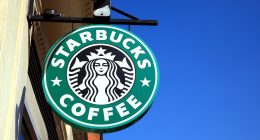
Shogo Takemoto’s family has tilled the rice fields of eastern Japan for more than 200 years. They stash their savings in an agricultural cooperative and borrow from it to help finance the farm’s day-to-day operations.
But with interest rates near zero, the return on the loans is too little to keep the cooperative going. So it deposits Mr. Takemoto’s savings with Japan’s bank for farmers and fishermen, which sends the money overseas to earn a better yield.
That’s how Mr. Takemoto became an indirect investor in car rental company Hertz Global Holdings Inc. before it declared bankruptcy in May. Among the owners of Hertz’s debt was Norinchukin Bank, which owned bonds backed by pieces of loans to struggling companies like Hertz.
Later that month, the bank—founded nearly 100 years ago to serve the people who feed Japan—disclosed a staggering $3.7 billion unrealized loss on such bonds and said it would pause further investments.
The loss, which has mostly been recouped as markets rebounded, was shocking for its size and also because Norinchukin invested exclusively in triple-A rated bonds, which are supposed to be among the safest securities anywhere.









